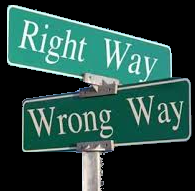
Fannie Mae did not comply with the laws or regulations and in this answer alone Fannie Mae would not be labeled an honest company, at least not for the years around 1995 to 2008. Perhaps when Fannie Mae started in 1938 the organization was compliant with the laws and regulations set forth for such an organization. But when it “was rechartered as a shareholder-owned corporation with the responsibility of obtaining all of its capital from the private market” (Jennings, 2012, p. 121) in 1968 the honesty within the company in my opinion starts to be questionable. For the simple fact that now in order to gain its capital it would be up to individuals in a market, where the shareholders would either profit or lose money depending on the performance of the organization. Even though they were named “the most ethical company in the United States” in 2004 they did not obtain this title honestly, sure their customers (the ones obtaining the loans for mortgages) were happy with them because “from 2004 to 2006, the company operated without a permanent chief risk officer” (Jennings, 2012, p. 130) leaving the risk taking to then-CEO Daniel Mudd who had an internal reputation of sidestepping warnings of wrong doings. The company was not forthcoming with information, instead they tried to cover up the truth, or manipulate it to their advantage in order for the senior officers of the organization to benefit buy gaining a substantial AIP Award Bonus. Once these bonuses were announced the greed the senior officers obtained distorted their obligation to be forth coming with information and comply with the laws and regulations. Employees of Fannie Mae, even some of the upper level managers, expressed their concern with the organizations accounting practices and other business relations. For example Louis Hoyes voiced his opinion of ‘moving’ $40 Million of income in order to meet the goals set in order for the senior level officers to obtain their bonuses etc. Even though he questioned the ethics behind the deal, and voted no on the ideal. “No further action was taken on the question raised; the deal went through as planned, and the income was shifted to another year.” For me, it doesn’t take the mindset of an accountant to make the assumption that ‘shifting money to another year’ sounds not only unethical but illegal. So for me I would say based on Entine and Jennings model, Fannie Mae is not an ‘honest’ organization, and in order to be deemed an ‘honest’ organization in my books they have a long ways to go and a lot to prove.
References
Jennings, M. (2012). Business ethics: Case studies and selected readings. Australia: South-Western, Cengage Learning.
